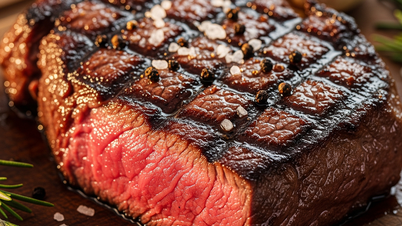A new study has made a surprising discovery about how genes and blood type determine which foods help the body thrive and which can have a negative impact on health.
It is theorized that people with blood type O have the genetic makeup of those who thrive on a diet rich in animal protein, while blood type A is better suited to plant-based foods. Is this true when scientifically proven?
What is a healthy diet for blood types A, B, and O?
Experts believe that certain foods can cause beneficial or harmful reactions depending on blood type. Accordingly, the dietary recommendations for specific blood types are:

Blood type nutrition needs to be combined with other factors such as lifestyle, physical condition and environment.
Blood Type A : Consume soy protein and focus on organic products. People with blood type A are said to have sensitive immune systems and thrive on fresh, whole foods.
Blood Type B : Have the most adaptable digestive system. This group is recommended to have a balanced diet, can consume dairy products but avoid chicken and some cereals.
Blood type AB : People with blood type AB are advised to combine both the A and B diets; focus on seafood, tofu, milk and green vegetables; stay away from caffeine and alcohol.
Blood Type O: People with blood type O naturally need to eat a lot of protein. Red meat, fish and vegetables are recommended, and grains and dairy are limited.
Although the scientific evidence surrounding these claims is not yet complete, studies have found that individuals who followed blood type-specific nutritional guidelines reported increased energy, better digestion, and improved health, according to Rolling Out (USA).

Nutrition from tofu is said to be suitable for blood types A, B and AB
There is no specific diet that is right for everyone.
It has been suggested that blood type diets can lead to nutritional deficiencies. Rigid classifications can ignore individual factors such as genetics, lifestyle and existing health conditions.
Leading researchers and nutritionists emphasize that while blood type can influence some aspects of health, it is only one of many factors that influence how our bodies process food. Genetics, lifestyle, environment, and overall health all play an equally important role.
If you're intrigued by the blood type diet, experts recommend taking a measured approach. Start by keeping a detailed food diary, noting how different foods affect your energy, digestion, and overall health.
However, no specific diet is right for everyone. It is important to pay attention to how your body reacts to different foods, maintain a balanced diet, and consult a health professional.
Source: https://thanhnien.vn/nghien-cuu-thuc-pham-tot-cho-tung-nhom-mau-185250206113321487.htm




























































































Comment (0)